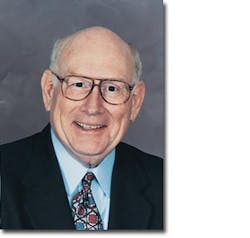Ground Clutter
Note carefully that word geared. I am no engine expert, but it seems that different spinning parts of a turbofan engine have different optimum rotational speeds. It would be more efficient if they could run these rotating parts at different RPMs, but in the past that has not been possible. The “geared” turbofan engine will make that possible, thus cutting fuel burn by some 12 percent, cutting operating costs, reducing emissions, and reducing noise.
Don’t get me wrong—this geared engine will not come with the “four-on-the-floor” transmission that you loved in high school. It’s much more sophisticated, but you can find technical info by googling “Pratt & Whitney+geared turbofan engine”. That got me more information than I could understand.
Best estimate is that the engine will be in use on smaller jet airliners by 2012. It has already been tested both in test stands and on B-747 and A-340 airplanes. Because the engine is “scalable,” producing larger engines should be a relatively simple process.
I love information like this because it confirms (to me at least) the belief that the free market is hard at work solving the problems of today, and doing it far more efficiently than the guvmint.
To cut fossil fuel use, for example, the guvmint offered rewards in the form of subsidies to producers of one product, ethanol. Surely everyone knows by now what a disaster that has been. The free market, on the other hand, stands ready to provide great rewards to anyone who can produce any product or service that will save fuel costs.
Thanks to the guvmint method, great gobs of corn have been diverted from food to fuel. Some people who were working to develop cheaper fuel than that provided by fossil fuels have given up because they can’t compete with subsidized ethanol. And this “progress” is paid for by the taxpayers.
Recently an engineer — an engineer, for crying out loud — told me that he couldn’t see any breakthroughs that would measurably ease our dependence on fossil fuels. Yet here we have P&W talking about a 12 to 15 percent drop in fuel used by airliners. That, folks, is measurable. If successful, they will be rewarded generously. Others, seeing that success, will work even harder to achieve the same success and rewards.
Interestingly, none of those people will be rewarded until and unless they make breakthrough products/services that the all-powerful consumer deems worthy of purchase.
I hope Pratt & Whitney succeeds beyond its wildest dreams.
